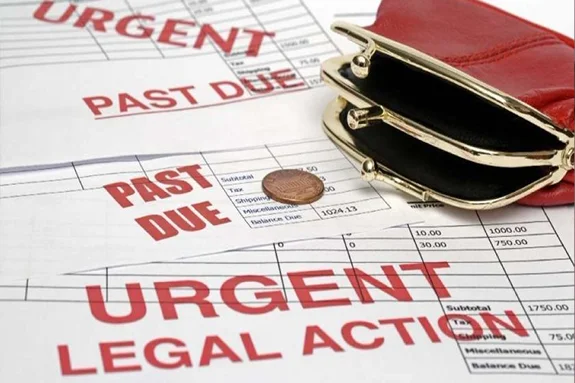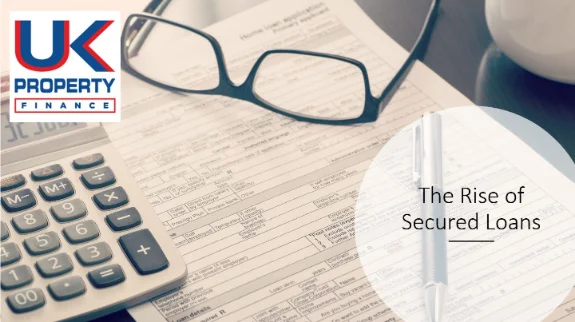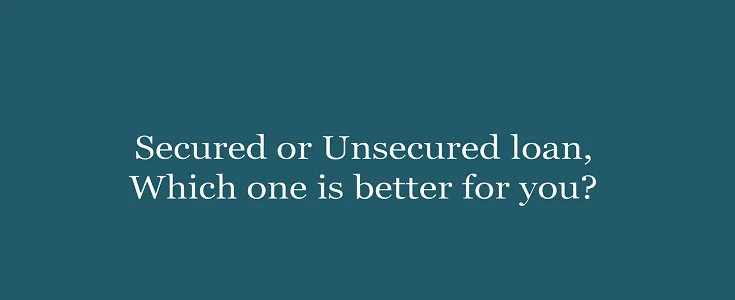All Debts Consolidated Within 5 days For Young Couple From Cambridge
We were approached by a young couple from Cambridge who, for various reasons, were struggling with financial debt. Between them, they had accumulated seven credit cards, all with maxed-out balances, multiple fully utilised overdrafts, and a handful of personal loans, all with varying rates of interest and all requiring payments each month. The clients were only able to meet the minimum monthly requirements, so the balances remained virtually unchanged.
Urgent action was needed, but their own bank and several others had rejected their applications for debt consolidation as they failed to pass the tick-box underwriting decision-making preferred by those lenders. UK Property Finance suggested a debt consolidation loan with one of our chosen lender panels and accessed the preferential underwriting we had managed to negotiate. We carefully presented the client’s case to the lender and successfully proved the benefits of repaying the client’s multiple debts with one single, competitively priced loan, which ensured the subsequent repayments would be well within their means.
Ultimately, we managed to shrink the client’s monthly outgoings by approximately 45% by reducing the overall interest charged. This provided our clients with significantly more disposable income and helped them to revert to enjoying life again.
As their consolidation loan was offered in the form of a second-charge mortgage loan secured against their property, we were able to negotiate an unbeatable rate of interest via the preferential rates negotiated by our panel of carefully chosen market-leading lenders.
The Rise of Secured Loans
Britain’s secured borrowing market has seen significant and on-going growth for several consecutive years. Particularly in the more specialist sectors of the secured loan arena, application volumes are peaking and showing no signs of abating.
But what exactly is fueling this UK-wide secured loan increase? What’s behind the rise of secured loans in both private and business borrowing circles alike?
Greater availability
For one thing, brokers and lenders alike are gradually beginning to acknowledge the importance of diversifying their portfolios.
Traditionally, secured loans have been seen as something of a last resort. In addition, credit scores have been considered the be-all and end-all by far too many lenders. The public has been crying out for more flexible and accessible funding solutions, which, on the high street at least, have been thin on the ground at best.
Today, there’s a growing network of specialist lenders across the UK working hard to turn things around. From short-term bridging loans to subprime mortgages to development finance, the availability of diverse and dynamic secured lending products is at an all-time high.
The more difficult it becomes to qualify for a traditional High Street loan, the greater the number of applicants turning to the UK’s specialist lending sector.
Regulatory changes
Of course, the supervision and control of the Financial Conduct Authority have also renewed confidence in a sector that was once viewed with scrutiny. Taking charge of the regulation of the entire secured loan sector, the FCA is committed to the implementation of ongoing improvements for the benefit of the borrower.
The result of this is a secured loan market that’s significantly more transparent than it has ever been. Interest rates are plummeting, irresponsible lenders are being driven out of business, and the market is booming as a result.
The flexibility of secured loans
One of the most attractive characteristics of a secured loan is the fact that it can be used for just about anything. Traditionally, high-street lenders have offered a relatively limited portfolio of secured loans with very specific purposes in mind. Mortgages are a prime example. available exclusively for property purchases and subject to strict terms and conditions.
Even with all the collateral in the world and an enviable financial position, a poor credit history could still see applications rejected.
By contrast, the UK’s specialist lending sector focuses heavily on flexibility and accessibility. In terms of limitations, there aren’t any secured loans available to cover absolutely any investment or outgoing. Bridging loans in particular provide limitless security, which can be used for any legal purpose whatsoever.
In addition, new-generation secured loans are routinely issued with no credit checks or proof of income required. The only proviso is the provision of sufficient collateral to cover the cost of the loan; the rest is of little consequence.
For obvious reasons, this has come as a welcome lifeline for millions of businesses and households affected by imperfect credit. Specialist secured loan applications are considered by way of individual merit and are not simply counted out of the running based on credit issues alone.
Low interest rates, minimal borrowing costs
If all this wasn’t enough, there’s the added appeal of the lowest possible interest rates and unbeatable borrowing costs. As secured loans are issued against the value of the applicant’s property or assets, they’re considered comparatively low-risk credit facilities. The lower the risk on the part of the lender, the lower the resulting costs for the borrower.
Hence, in many instances where both secured and unsecured loan options are available, it can prove exponentially more cost-effective to go with the former. particularly given the speed and simplicity with which a secured loan can be arranged.
Accessing the best secured loan deals in the UK often means looking beyond the High Street; consult with an independent broker for more information.
Bad Credit Homeowner Loans: A Lifeline You Won’t Find on the High Street
Unless you maintain a flawless credit score, which is borderline impossible, you’re unlikely to qualify for a conventional loan. As far as most high-street lenders are concerned, credit reports are still the black-and-white be-all and end-all of lending. Nevertheless, this doesn’t mean you’re entirely out of the running.
You simply need to set your sights on a more appropriate type of loan to suit your needs and circumstances.
What are bad-credit homeowner loans?
As the name suggests, bad credit secured loans are loans that are secured on appropriate collateral provided by the borrower. In this instance, homeowner loans for poor credit applicants are secured on the borrower’s property.
Unlike conventional unsecured loans, poor credit-secured loans are specifically designed for customers with imperfect credit scores. Rather than being scrutinised based on their financial histories, applications are considered in accordance with the borrower’s collateral.
Just as long as the value of the property covers the total cost of the loan, everything else is inconsequential. Hence, secured loans for poor credit applicants can be obtained for almost any purpose and for almost any value.
What can bad-credit homeowner loans be used for?
As touched upon above, secured loans for bad credit can be used for just about any purpose imaginable. Nevertheless, there are certain uses for secured loans with bad credit that are more common than others, which include:
- Consolidating existing debts and outgoings
- Funding home improvements and alterations
- Paying unexpected bills
- Meeting urgent business expenses
- Covering the costs of vehicle repairs
- Funding luxury purchases and holidays
Just as long as you can comfortably repay the loan, a secured loan using your home as collateral could be ideal.
How do homeowner loans with bad credit work?
Irrespective of how much you need and what you need it for, you’ll find the application process surprisingly easy. As the total cost of the loan is covered by the value of your property, no credit checks or extensive proof of your financial history are necessary. This simplifies and accelerates the process significantly, enabling the funds you need to be accessed as quickly as possible.
Homeowner loans for bad credit can be repaid over as many months or years as suits your budget, typically with more competitive rates of interest than unsecured loans. So even if you have a less-than-perfect credit score, this doesn’t mean you’ll be looking at elevated interest rates and excessive borrowing costs.
How can I get a good deal?
If you’re interested in applying for a homeowner loan with bad credit, it pays to compare the market with the help of an independent broker. Look beyond the High Street and consider as many deals as possible from specialist lenders across the UK.
With bad-credit loans, it’s all about flexibility. You need a dynamic service provider that’s willing and able to create a tailored solution to suit your requirements and your budget. With the help of UK Property Finance, that’s exactly what you’ll get!
For more information or to discuss our bad-credit homeowner loans in more detail, contact the team at UK Property Finance today!
Understanding How to Use Collateral for a Secured Loan
It is important to be able to have access to loans when you need them. Sometimes you will need to provide a lender with collateral in order to receive the favourable loan terms that you are looking for; this is typical of secured loans. If you have yet to secure a loan with collateral, then you may not understand how the process works. There are specific things that will be accepted as collateral, and knowing what they are as well as the benefits is important.
Why is collaboration necessary?
Collateral is necessary for loans when the lenders need assurances. Sometimes people with less than stellar credit will need access to loans. If the lender deems the loan to be risky, then having collateral in case something goes awry will limit their risks. This makes it easier for them to justify giving you the loan, and it can wind up giving you more favourable terms.
What are the benefits of using collateral for a loan?
There are various benefits to using collateral to get a secured loan. The most apparent benefit is that it allows people with less than perfect credit to get the loans that they need. This can lower the interest rates on the loan and will also make the approval process go smoother. If you want to get a loan and your credit score is less than 700, then it might be in your best interests to use collateral to make things as manageable as possible.
What are the negatives of using collateral for a loan?
The negatives of using collateral for a secured loan are pretty easy to understand. You are using your assets to secure the loan, so if something goes wrong, you could potentially lose those assets. If your vehicle is being used as collateral to secure the loan and you don’t pay it back, then your car could get repossessed. Also, sometimes these loans are long-term, and you can get stuck paying interest for a long period of time if you don’t plan ahead.
What is accepted as collateral?
The type of collateral that is accepted for a loan will depend on the type of loan that you are applying for. Generally speaking, there are three types of loans that you will be able to seek out: personal loans, business loans or commercial finance, and auto loans. Each of these three types has differences in the types of collateral that you can use to secure a loan.
Personal loans allow you to use real estate, home equity, vehicles, and even your pay checks as collateral for a loan. There are also cases where savings accounts, investment accounts, and valuables are accepted as collateral. The most common collateral that is used for these purposes is definitely real estate, vehicles, and home equity.
Business loans allow people to use similar things as collateral but will also add in a few options. You can use business assets such as inventory, machinery, or a blanket lien as collateral. Auto loans will allow you to use the car that you are purchasing as collateral or other vehicles that you already own. No matter what type of loan you are applying for, the value of your assets will need to be determined before moving forward.
Wholesale Loans
The subject of wholesale loans is one of ongoing debate, with various lenders having entirely opposite views on their overall value. Nevertheless, when wholesale lending is handled responsibly and proactively, it has the potential to offer a variety of unique benefits for both investors and lenders alike. It’s simply a case of identifying the opportunities where they exist and proceeding at all times with due care and attention.
What is wholesale lending?
In the simplest of terms, wholesale lending refers to a system of taking the money of investors and passing it on to lenders at special wholesale rates. These lenders then provide loans to borrowers at a variety of levels at normal (or slightly lower than normal) rates of interest.
In a working example, one wholesale lender could pass capital from any number of investors on to any number of conventional lenders. These lenders would then make this money available in the form of loans for their own customers, earning money in accordance with their own interest rates and other borrowing costs. Likewise, as the money is paid back to the wholesale lender, it is repaid with interest or commission at a previously agreed rate. This in turn amounts to profit for the wholesale lender, who is then able to pay interest to the investors who provided the capital in the first place.
Why is wholesale lending deemed attractive?
There are two important reasons why wholesale lending is deemed so attractive by so many investors. First, it represents a good investment choice with the potential to offer returns that are generally higher than would be expected with any other comparably safe investment. Though returns vary significantly from one case to the next, they are generally considered comparatively generous.
But perhaps more important still is the way in which wholesale lending is indeed significantly safer than many other comparable types of investment. The reason is that the money is typically secured against the assets and property of the borrower, meaning that the loans are offered in a largely risk-free manner. Even if the loans are not repaid as agreed, the investors are unlikely to lose out.
As such loans are typically secured on borrowers’ assets, they can be provided to those who would typically be considered too high-risk to be offered financial support elsewhere. which in turn means that the market for these kinds of loans remains uniquely strong and demand robust at all times.
For more information on anything to do with secured loans, wholesale lending, or borrowing in general, get in touch with the UK Property Finance customer service team today.
A Brief Insight on Secured Commercial Loans and Unsecured Business Loans
If you are thinking of starting up a new business or you are looking to expand an already successful corporate enterprise, the chances are that you will get absolutely nowhere and at light speed if you do not have access to the required type of financing you need.
When trying to source suitable commercial finance products, an applicant will typically achieve funding by means of at least one, but sometimes multiple, business loan(s). When the time arrives, the borrower will ultimately be required to decide whether to apply for a secured business loan or an unsecured commercial loan product.
With this in mind, we need to understand the main differences between these two types of finance so that we can make an informed decision and take the most logical route.
What are secured loans for businesses?
A secured business loan is a long-term borrowing product that is available exclusively to applicants who are able to offer some type of collateral as security against the sum being borrowed. In most cases, this type of financing is usually secured on a property or suitable commercial assets. Although the borrower will typically use a commercially owned building or business asset as security, there are cases where secured business loans are taken out against an applicant’s home or primary residence.
Provided you are entirely certain that you can pay the loan back on time and in line with the terms and conditions set out in the agreement, a secured loan is often the most affordable type of financing available to the modern business borrower. As the loan is secured against an appropriate property or business asset, the rate of approval is generally exceptionally high, and your personal credit history and company finances will not be scrutinised as they would normally be when applying for an unsecured borrowing product.
Secured business loans are usually paid out at quite a fast pace, and the application process itself is incredibly quick and simple to understand. Of course, there is a downside to all of this, which is the fact that your assets will be removed from your possession and sold on to a third party should you find yourself unable or unwilling to make the required repayments in a frequent and punctual manner.
What is an unsecured business loan?
Unsecured business or commercial loans are short- to mid-term borrowing products that are not secured against an applicant’s assets. The main benefit on offer here is that if you are unable to pay an unsecured debt, you will not lose your home or valued assets as a direct result. However, with an unsecured loan, you won’t be able to borrow anywhere near as much as you could if you secure the funds against something of value. The application process is also a lot less forgiving, with much tighter restrictions, and you will also find that the interest rates can be quite high if you are successful in terms of accessing the funds you need to help your business grow and progress to the next stage.
Remortgaging versus Secured Borrowing
You may find it somewhat surprising to think that, when it comes to remortgaging, many borrowers remain completely unaware that another option exists. Recently, a growing number of independent finance advisers have begun to advise their clients of a unique range of secured borrowing products, which can sometimes be of much greater benefit to the homeowner in search of additional funds.
To understand the suitability of each borrowing product, it is important that you know the basic differences between a secured loan and a remortgaging option, so we’ll take a look at each one in the next couple of paragraphs.
What are secured loans?
A secured loan is a long-term borrowing product where the loan amount is secured against something of value. This is usually a homeowner’s property, and this is the main reason that secured loans are often referred to as homeowner loans. Whereas personal loans have an upper ceiling of around £25k, a secured loan is only limited by the amount of equity that a homeowner is able to offer, a figure that is worked out by subtracting any outstanding mortgage debt from the market value of a property. When applying for a secured loan, it is important to realise that your home could realistically be repossessed should you fail to make payments on time, either deliberately or through no fault of your own.
What exactly is a remortgage?
A remortgage is very similar to a secured loan in that the borrower is offered a loan amount in direct relation to the amount of equity they are able to provide. However, unlike a secured loan, which may or may not be secured against a homeowner’s property, a remortgage will typically always require the applicant to put their home at risk in the event of non-payment. With a secured loan, it is quite possible to offer other types of collateral against the amount you are seeking to borrow.
Another difference between a remortgage and a secured loan is that most remortgaging products can only be used for a limited range of reasons, such as home improvement. With a secured loan, the borrower can typically use the funds for any purpose they see fit. On top of this, the remortgaging application process is often quite complicated and can take a considerable amount of time to complete.
When you choose a secured loan
It is usually in your best interests to apply for a secured loan whenever you need to borrow a considerable sum of money over a substantial length of time. Secured loans are also the ideal option whenever you require the funds for reasons other than home improvement, although they can also be used for this purpose if this is what you are looking to borrow for.
Unlike remortgaging products, secured loans can be taken out against additional properties that you own other than your primary residence, and they can even be used for commercial reasons such as expanding a business or to secure new assets for a self-employed venture.
Although secured loans are typically much easier to apply for, with the funds being released in a matter of just two or three weeks, both products offer unique advantages, so it always pays to do a little research and seek sound borrowing advice from an FCA-approved broker or independent adviser before deciding on which product to apply for. Work out the costs of a mortgage using our UK mortgage calculator.
Secured Business Funding
Raising the required capital to start and develop a new business is often the dictionary definition of a catch-22 situation.
In terms of available lenders, there are dozens of major banks, building societies, and financial institutions that are happy to loan cash to the required amount. Unfortunately, they only tend to be willing to hand over a penny if you can already prove your capacity (and that of your business) to pay it back. which can, of course, be difficult if your business either doesn’t exist or is only just getting off the ground.
You need money to get your business where you want it to be, but you need to get your business to a certain position before most will even consider lending you the required capital. Suffice to say, this is a difficult and frustrating situation that many business owners and entrepreneurs are probably all too familiar with.
An accessible alternative
This is just one of the reasons—albeit a big one—why secured business funding has the potential to represent a far more accessible and beneficial alternative. In terms of simply getting hold of the cash you need in the first place, a secured loan could offer the kind of flexibility and affordability no conventional loan comes close to.
The key difference with secured business funding is the way in which the loan is secured by property or assets of some kind or another. With conventional loans, you essentially need to prove your current financial situation to such an extent as to prove your capacity to pay back the loan. With a secured loan, this isn’t necessary at all, you simply need the required collateral, in accordance with the value of the loan itself.
This way, current financial circumstances and even your future financial outlook are superfluous considerations. This in turn significantly simplifies the application process, meaning that regardless of how much capital is required, it can be obtained far more quickly and easily. Not only this, but it is often true to say that secured business funding is offered with considerably lower rates of interest and overall borrowing fees than comparable conventional loans. This again largely comes down to the simplicity of the deal: you put up the required collateral, they provide you with the capital, and repayment agreements are reached accordingly.
Speaking of which, there can also be a great deal more flexibility in terms of repayment with secured loans. Along with the usual method of paying back a specified amount on a monthly basis, it is also possible to pay larger sums on a less frequent basis, or perhaps something like a lump sum inclusive of all agreed borrowing charges at a later date.
Even if the applicant in question doesn’t have the most outstanding credit history, this rarely tends to be an issue when it comes to secured loans. The only thing needed to facilitate the loan is the required collateral; the rest rarely comes into the equation.
Time savings, low costs, simplicity, and flexible repayment options—just four of the many benefits that accompany secured business funding over and above the traditional alternative.







